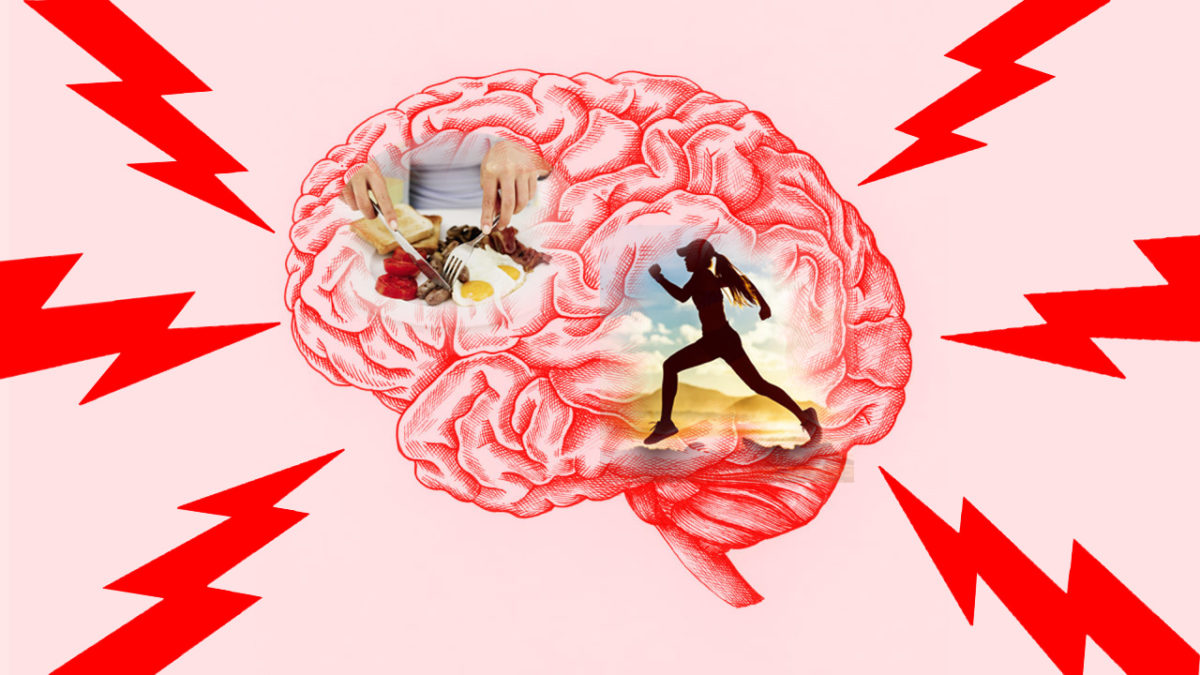Warning: This story contains graphic content about eating disorders and their effects that may disturb some readers.
It was 11 o’clock on a school night. I was in my room in Holy Cross House, lying on my bed in the dark with my eyes wide open.
I was afraid if I fell asleep I might never wake up.
I was afraid to die. I had tried to gain more control over my life, but in the process, I had done the opposite. I had given up my power over my thoughts, habits and body.
I had developed an eating disorder.
The greatest shape of my life
Two and a half months after I started university, I thought I was in the greatest shape of my life. I went to the gym every day and ate what I thought was healthier. I didn’t eat a lot of meat. I stopped eating dessert. I would chew gum obsessively. I wasn’t focused on loneliness, conversations or the stress of school. I was focused on planning my portioned meals. My life became scheduled by the minute around the one thing I could control: food.
I started to float through a hazy version of existence. I thought it was university stress. I didn’t want to believe it was anything else.
During this time, I had one recurring nightmare. I was floating in darkness. I would grab my hair and clumps would fall out until I had visible bald spots. My heart sunk and my mouth would open in terror. My eyes would snap open back to the darkness of my dorm room. Some mornings, clumps of my hair would fall in the shower. I was living my nightmare.
The Freshman 15
I never gained the Freshman 15. Instead, I lost the Freshman 25.
By the Remembrance Day weekend, my size 2 jeans hung limply from my waist and the bones in my back started to pop out. I almost cried when dinner was at 6 p.m. instead of 5:20 p.m. My dad’s barbecued hamburger had been one of my favourite meals since I was 10. Now I was terrified that I would become fat if I ate it.
In some ways, my mind had split in two. One side, the rational one, knew I could eat the burger and not become fat. But the other side told me my hard work would be wasted if I indulged.
We went to the hospital the next day. I went through blood tests and X-rays, terrified that my body, which I once thought was strong, was actually damaged.
My fears were realized. The nurse told me the ways I was destroying my health: lower life expectancy, higher chance of heart failure, weakened immune system, higher chance of osteoporosis. The list didn’t stop there. The nurse covered all the ways my brain was affected too – increased chance of depression, anxiety and even obsessive behaviours. Later I learned as many as 10 per cent of people who experience anorexia die due to health complications or suicide. I felt like I didn’t know how to be healthy anymore.
Even worse, the nurse said it would get worse before it got better.
Despite the medical concerns of an eating disorder, the real demon was in my mind. In just two months, I had become so used to my unhealthy habits, that I was terrified of leaving them. They were my support system, something I could control. Without my eating and gym routine, my malnourished brain was sure I would lose control of my social life, grades, work, everything. Apparently the fear of death wasn’t enough to spring me back into eating right. It was so hard to change.
The worst is yet to come
For two years, I remained in my zone of uncomfortable comfort. But one day, I decided I couldn’t give up anymore days out just to keep my schedule intact. I wanted my energy, endurance and unhindered happiness back.
But when I started my journey, the nurse’s words that Remembrance Day weekend returned to me: “The worst is yet to come.”
My body had to recover from the damage. And to recover, I needed more food than ever before.
My rational side told me to listen to the doctors and eat until I was full. But I would eat a full meal and still be hungry. The remaining eating disorder self said I would gain 100 lbs in two weeks if I ate that second apple or cereal.
I found it hard to focus on projects. I considered dropping out.
I was at war with myself.
But six months later, my organs were healed. I was near the healthy weight I was in high school. Despite everything, I won.
Moving forward
Eating disorders suck. Parts of myself slowly died as I fought for control in an unhealthy way. It wreaked havoc on my mental and physical well-being like nothing ever before.
My experience is something I would never want anyone to go through.
But my experience taught me our bodies are smart. It knows how much we need to eat to be healthy. And now I honour my hunger. In my (almost) recovered state, I can finally enjoy life, more than I could when I was worrying about my schedule. An eating disorder-free world is a world without shackles for me. And I can’t wait to start living it, chocolate chip cookies, skipped gym days and all.
…
For more information and eating disorder support visit nationaleatingdisorders.org or nedic.ca.
…
This is part one of a two-part series focusing on eating disorders by Caitlin Dutt. The second part will appear in the Jan. 29 edition of The Aquinian.

